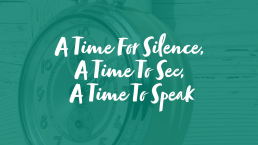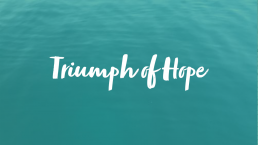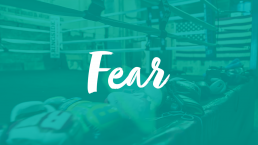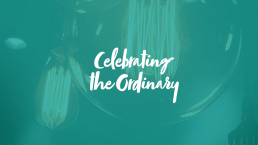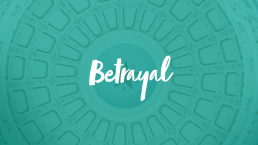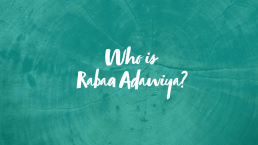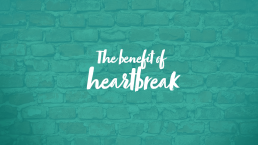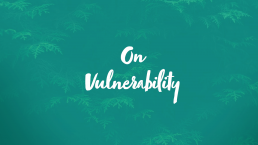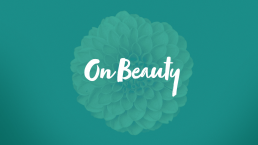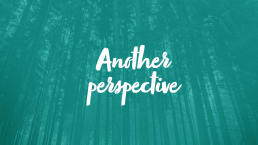A Time For Silence, A Time To See, A Time To Speak
What is happening in the world these days can feel overwhelming. The badgering news of terrorism, wars, and President Trump’s latest actions – just to name a few – are triggering all kinds of emotional reactions among different people.
Some are following the news addictively on an hourly basis. A habit that can quickly take over one’s sense of sanity and mental health.
Some are channeling all their energy into activism and have become watchdogs for the issues they care about. “We have to be proactive about every single thing before our rights get eroded. Even if our actions are preempted it may be a deterrent,” one activist friend told me. Her passion was inspiring but also felt overwhelming in its charge. Activists can also find it difficult to find a sense of calm in the midst of chaos and sometimes feel overwhelmed and fatigued not only from their work but from the intensity of their own emotions.
Some are rejecting the news all together and retreating to their spiritual practices like meditation and yoga. “Aleppo and all the killing and death are not real. It is not part of our lives. The reality is in the spiritual realm. The reality is in the Divine,” one “healer” told a woman who was crying about the massacres happening in Aleppo. Spirituality is indeed a place of center but that center also needs to be placed in the reality of this world and not in an alternative universe.
Some are going about their daily lives without bothering at all to check in on what is happening in the world. They are either not interested or feel they cannot do or change anything anyway. “I don’t feel responsible for the actions of the American government,” one businessman told me. Even though they may think they are passive about the world, history has showed us that there is no such thing as passivity. The way I see it is every citizen is part of every country and if you happen to be one with freedom, money and power, you more than anybody else are responsible to use it for good actions. Ultimately each voice matters - powerful or not. Those who remain silent in situations of injustice legitimize it.
I believe now - like no other time - is the time to show up fully in the world. We are living in a changing time - wherever you may live and whatever your politics may be. People all over the world are becoming more and more connected to each other on issues related to wars, terrorism, the environment, women’s rights, human rights, money, and politics. No one is immune from anything anymore. Our interconnectedness is more obvious than ever before.
Truthfully speaking, finding my own center in what feels like a storm taking over the world has been a challenge. I have been the overwhelmed excited activist, I have been the silent spiritual retreater who isolated myself in the wilderness, and I have had days of trying to avoid what is happening in the world. What I have come to realize is that the extremes of all of these behaviors are not the solution – at least not for me.
What I have learned is…
SILENCE is important. Some feel silence in meditation, some in the refuge of spiritual work, some in working out, some in nature. In my opinion, it is essential that we create a room for ourselves to be silent every day. Silence centers us; it anchors our spirits in the Divine. Missing out on it, is like depriving our spirits from water and air. But don’t stay in silence. Though spirituality, silence and meditation leave one with a sense of extreme beauty and comfort, staying there is ignoring our realities as human beings in this world.
SEEING what is happening in the world is just as important as the time you create for silence. Be present and, understand what is going on politically, economically, and environmentally. That we see and witness what is happening in today’s world is critical for developing connections and feeling compassion for each other. When I saw an American woman from Montana who had never been to Syria or the Middle East cry at what was happening in Aleppo, I said to myself “I wish Syrians could see her tears. It would show them that people do care about them.” Many around the world who are going through horrific crises be it in Syria, Iraq, or Southern Sudan feel that the world does not care about them. That feeling creates disconnection rather than connection. It creates anger rather than love. One tear shed can do the magic of healing. So SEE what is happening in the world and don’t shy away from acknowledging it.
Then SPEAK! However you choose to - speak! But speak, share and act to make this world a better place. Each one of us has the responsibility to show up fully in this world. We owe it to ourselves. We owe it to the Earth, to the Divine, to our values, however you want to see it. SPEAK! For your retreat in silence is a lie you are telling yourself. Those who are suffering see your silence as a hypocrisy of your self-proclaimed values. SPEAK what is right. SPEAK your conscience. SPEAK your values. Show up however you want. Just do not hide behind silence. You legitimize oppression when you do that.
The integration of SILENCE, SEEING, and SPEAKING may lead us to different kinds of actions. When the presence of silence anchors our seeing and calms our souls, we speak not from anger but from consciousness and awareness; such speaking has different energy to it. It is one that stems from the strength of our spine rather than the charge of our chests. This time, like no other, we all need to show up.
May we all show up fully and awaken in this time.
Triumph Of Hope
In the midst of what feels like a time of fear, prejudice, anger, and blame, one can easily lose the self into pain and despair. We are living in a divided world – a division that no longer feels along the lines of “us” and “them”, this party and that party, or this nation and that nation. The division of today is taking place in the intimacy of our families and friends. Fathers who voted for this person and daughters who voted for that person; mothers who hold this value and sons who hold that value. When division, frustration and anger enters into the intimate corners of our lives, it is all that much more confusing and painful. And yet, in the darkest moments, it is important to search for hope around you.
When you are overwhelmed with news of violence and hate, when your heart is broken for whatever reason and for all the reasons, look for moments of hope. Look for that act of kindness from a stranger. They are all around you. In the subway of New York I witnessed, a young Polish Christian woman holding the hands of a young Somali Muslim woman wearing a headscarf. The Somali woman was lost and did not speak English. The Polish woman took her hands and in her broken English went out of her way and took a different train route just to help the young Somali woman arrive at her destination. When some political and religious leaders tell us about the division between Christians and Muslims, when they bring out and build up fear, I think of these two women in a New York subway and I think to myself They Are the Triumph of Hope.
When you think the doors are closed, when you feel darkness has arrived, when anger is surrounding you, knock down the brick walls around you and open a window into hope. I see hope in the painting of a Palestinian artist from Gaza who created the most beautiful painting in the midst of a heavy Israeli bombing. Out there, in the colors of his canvas, he writes “In this life is what is worth living for.” I see the words of life in the midst of bombardments of death and I say to myself He Is the Triumph of Hope.
When all is gone, when love leaves you, when what you have built is stolen, pick up a machete and pave a path of hope into the wilderness of your world. Don’t wait for others to create it. You be the one who paves the path of hope. Be Suha, a young Iraqi woman who created a small radio program that boasts out the latest music favorites of her family and friends still stuck inside Mosul under ISIS control. She managed to escape Mosul and in the midst of her exile she paved a path of hope as the world watched mesmerized by ISIS - forgetting the people who bring hope to those around them. I listen to her music and I think to myself She Is the Triumph of Hope.
When your energy is low, when the tears pour out like rain, when your body is aching, go out and walk in the wilderness. And you will see the broken winged bird flying. And the dog with no tail running. You will see beautiful broken branches. You will see pale grass growing. Within nature lies the source of all hope. When all the light in your home burns out, go, go out and bask under the warmth of the everlasting light – under the sun that keeps on giving. I look at that light and I think to myself That Is The Triumph Of Hope.
When you think we are living in a war, look at the map written in the face of an Indian elder and witness the wisdom that kept him going. He Is The Triumph of Hope in staying still and holding on to that ground of indigenous wisdom until the story of that injustice comes out.
When you think all is gone, do not just shut your eyes closed. Open them and stare into the windows of this world and you will begin to see hope all around you. Hope is in the goodness of people, in the hearts of animals, in the beauty of Earth, in the stories of our ancestors, in the courage of our youngsters, in the fierceness of our oceans and in the kindness of our moon. Look around and you will see That Triumph of Hope. Write it, share it, speak it, dance it, be it, that’s how light shall be seen in the midst of darkness.
Celebrating the Ordinary
Rumi once said that “silence is the language of God, all else is poor translation.” As a lover of God, I always seek God in the wonders of the world, in serving other people, and in the exploration of all kinds of spiritual practices. I felt like these were attempts to catch a glimpse of God but in the process I could not hold onto that glimpse as I returned to my daily life. That glimpse was always somewhere else outside of me. Sometimes I saw it in the beauty of humanity amidst the worst of human atrocities. Sometimes it was in an act of kindness by someone we may know or may not know. The glimpse has always been like a jar that poured water of hope and belief into my heart. It was that belief that kept me going even as I worked in wars for many years. Other times that glimpse was in spiritual retreats I explored as I tried to make sense of all the wars in the world and the stories I was being exposed to. Other times I found it in my daily meditation and prayers. All were beautiful experiences but I also wanted to hold on to the sensation during my ordinary routines, be it attending a meeting, giving a speech, or traveling.
But recently I decided to explore that silence in the ordinary of every moment in my life. Instead of only separately carving some space for my meditation and prayers each day, I decided to integrate my seeking of the presence of God in every inhalation and every exhalation I take. So instead of checking my phone and my emails as I sat in the taxi or the subway, I just focused on my breathing—and with that, I focused on God. And so the practice spread throughout my day: in the shower, while walking from one place to another, and with every meal. And suddenly I noticed a beauty—a new beauty—I had not experienced before and that is the beauty of the ordinary.
Ecstatic feelings came out of the simplest experiences: the sensation of my feet touching the ground as I walked, the softness of every breeze touching my face, and even the drinking of a glass of water. And when everything was so beautiful, my seeking of the divine turned into the exploration of the ordinary of everyday life with no more separation between that, my prayers, and my daily activities. All became one.
And with that came a new curiosity. A curiosity to see everything in all its truthfulness for I figured that is where beauty lies. For example, I am someone who always put nail polish on my toenails because one of my nails broke a long time ago and never grew back normally. Therefore I always covered it up with all kinds of colors. But when the ordinary became so beautiful, I took off all my nail polish and was enjoying my broken toenail in its fragility, beauty, and even ugliness. I shaved my head and took all my makeup off. I know this is a bit extreme, but it is an extreme I can afford and am willing to do. Soon I started noticing how makeup felt like a mask that I was putting on every day: sometimes for good reasons, sometimes to cover up sad stories, and sometimes to pretend everything is perfect. It is not that I stopped putting makeup on, but at least I laugh at my silly attempts at masking. And “why mask?” I started wondering to myself. It is in our vulnerability that we connect to each other as people. It is in our joy and our sorrows, in our light and our shadows that we connect, learn, and grow. Suddenly those in my life who covered their shadows, as I covered the dark circles under my eyes with concealer, stopped being of interest to me. How can I connect with those who hide their shadow so deeply? It feels as unreal as the perfect looking woman who is full of plastic surgeries. She is beautiful! But everyone knows it is not real, natural beauty. And it is hard to connect with the unreal. For God is only in the real!
So here I am starting my 2014 with the most obvious knowledge that I have not paid attention to all my life: the beauty is in the ordinary. It is in the ordinary of our behavior of love, generosity, and kindness. The beauty is even in our behavior that triggers shame, embarrassment, and anger. For these moments help us grow. And in the cracks of the self, new light eventually comes. And with this, I started experiencing God with every breath: not separate from my daily life but part of every movement and every step I make. And for that, I am grateful!
May 2014 helps us all see the beauty of the ordinary.
What Do You Do With Those Who Betray You? Love Them!
I remember myself as a youngster playfully repeating “Et tu, Brute?” to my friends after reading Julius Caesar. Regardless of Shakespeare’s brilliant description of betrayal, I still had no idea of the deep pain betrayal causes when I first read about it. When I experienced the feeling myself later on in life, I realized it is like a dagger that digs deep down into alleys of the heart no one knows about except those we willingly let in. Betrayal can only happen when there is love and thus trust. For in the act of love, we let people into the most intimate aspect of our hearts, letting down our walls and protections. That’s when we risk hurt and betrayal but that’s also the place of utter love.
Whenever I felt betrayed by people I love, for it can only be triggered by those we love, I was left with a very confused feeling. The shift from a place of love to a place of hurt and anger triggered by betrayal is a radical shift over a short period of time. It feels like an earthquake has shaken the foundation of your love and it leaves one desperately trying to grab on to any solid land to get a grip of what has just happened. I usually grab the land of sorrow first, then anger, then disappointment. Eventually, I realize that all of these feelings eat my heart from within and I come to the realization that the only way out is through love. But love? Really? You may wonder how one can transform the pain of betrayal into love. I too did not believe it could happen at first but now I do.
Cambridge Dictionary defines betrayal as the “act of not being loyal when other people believe you are loyal.” In “The Ballad of Reading Gaol,” Oscar Wilde describes betrayal by saying “each man kills the thing he loves. By each let this be heard. Some do it with a bitter look. Some with a flattering word. The coward does it with a kiss. The brave man with a sword.” I see it simply as the lack of courage at being truthful to oneself or to others. Betrayal for me is not in the act of abandonment but in the lack of ability to communicate the truth, one’s truth, with integrity and grace to those we love. Only when we tell the truth can there be true healing. And the truth, no matter what it is, resonates in people’s hearts even if it sheds light on the worse aspects of who we are. For, the worse information, when told in the simple and honest truth, can be taken with the grace and love truth carries.
There was a few times in which I felt betrayed in my life. My first experience came from my mother the day she tried to commit suicide when I was a child, and then again when she pushed me into an arranged marriage later on in my life. Other betrayals came from friends and romances, people I deeply loved and trusted. As I am writing this, I am thinking to myself, “Well, it’s not so bad. I am almost 44 years old and I only felt betrayal 5 times in my life. Once for each decade. Not so bad really J.” I can laugh about it now but I can assure you each was a very painful experience that left me confused at the whole world, not knowing how to make sense of it all. I held on to the anger I felt towards my mother for many years for example. How could the woman I loved the most in my life, betray me so deeply, I often asked myself? But that question kept on repeating itself every time I felt betrayed. How could this person that I loved so much betray my trust and my love?
I was told once that a horse’s biggest act of love is when it lets humans caress it in between its eyes. I am sure there were times in which there were violations of this most intimate moment for the horse. We violate such spaces when we are afraid, insecure, feel powerless, or even jealous. I have a hard time believing people we love do things out of meanness. Hurt can only come out of hurt. Maybe I am wrong, maybe not, and maybe there are exceptions to this theory. Whatever it is, I am sure there were horses whose eyes were injured or even blinded in that moment of violation which can be seen as betrayal. If I was a horse I could only process what happened to me if I understood the feeling that triggered the person I loved so much to violate my space in such a painful way. Suddenly, I wondered if a horse would so easily let people come into that space. And that’s when I started wondering if I have ever betrayed myself?
Things started shifting from seeing any point of betrayal from inside out (its all about the others who betrayed) to seeing it from within the self. When have I betrayed myself? I started asking. What were those moments? What triggered me to betray myself? Ouch! For the journey to the self is always the hardest one. Here, I am embarking on yet another inner journey to see what I needed to discover, heal, love and accept about myself. Just as I was hurt, angry, and disappointed at the loved ones who once betrayed me, I became angry and disappointed with myself for all the times I let go of my instinct and did not trust it; for all the times I did not stand up for my rights or own my voice and power; for all the times I justified sacrificing myself and my well-being in the name of love; and for all the times I tried to protect my vulnerabilities by creating illusions and projections of the people I loved, rather than addressing and seeing my true needs and what I was seeking thereby seeing the true being and who they were.
I continued to dig and dig and dig deeper until I found the little girl in me that was acting out of her pain, vulnerability and fear rather than from the strength of the adult woman that I had become. The betrayal of me came from my own injuries. Some go back to my childhood and are still working themselves out in my adult life. Suddenly, the anger and the disappointment I felt towards myself transformed into deep love and affection right down to the vulnerable part of me that was acting out of pain, for I understood that pain and its source. As women we are trained and so used to being hard on ourselves and almost fearing self-love that it can be seen as selfish, not motherly, or as not giving enough. Fluctuating the self and punishing it for all the wrong we have done is so much easier than loving it. But then again, there cannot be healing, true healing, without love. And I had to consciously go into love to heal myself from the time I had betrayed myself.
In order to heal and love, one has to forgive. I once had a dream where I heard someone telling me, “We must forgive even when not asked for forgiveness.” I objected to that line in the dream. “This is too much,” I said. “Is it too much to ask to forgive those who have not asked for forgiveness?” But, the dream kept on repeating, “We must forgive even when not asked for forgiveness.” Finally, I calmed down regarding the saying, rested in it, accepted it and understood why we need to do it. It’s the only way we can heal ourselves and let the self be free of all resentments, anger, pain, and hurt. People hurt each other out of their own pain just as we hurt ourselves out of our own pain. So only when we release ourselves from that pain, see it, love it and forgive it, can we truly love the essence of the self in its most beautiful aspect and also in the aspect we are most embarrassed of, our own shadows, for that is the true meaning of love. That’s when I could love, truly love, those who have betrayed me and love them from their very point of betrayal. If they betrayed me out of their pain just as I betrayed myself out of my pain then I can understand, sympathize and I can love without needs or expectations but for what it is and what that person is, without any illusions or projections.
So yes, it is possible to forgive even when not asked for forgiveness and even when people betray their own courage at telling the truth. Though I still believe that only when we tell the truth can there be true healing, I also understand that it takes much courage to tell that truth and sometimes it will entail revealing the most insecure, frightened aspects of ourselves. I can only go through this process for myself. I cannot expect it at all from others. To each his or her own. For me, it is a journey of love. For I believe love is bigger than all. And love is the only true healer. That includes deep, utter, and true love for the self so we may give it the respect it deserves and not betray it again. At least hopefully so… Is it possible to love those who betrayed us? Absolutely YES! I LOVE each and every single one of them, most importantly my mother and also the friends and the loved ones who later came in my life. parental guidance And in that I found my healing. I am sure a horse would have done the same.
Who is Rabaa Adawiya?
Rabaa Adawiya Mosque has become a symbol for Muslim Brotherhood protests in Egypt after military took over in June 28 preceding the June 30 revolution, which led to the deposing of former president Mohammed Morsi. After more than a month of persistent protest, this historical Mosque has witnessed much killing and fighting and is now left burnt out after one of the worst bloody day in Egypt’s history where more than 830 people were killed by the army and the police in what is now called “Black Wednesday.”
The irony is that Rabia Adawiya, the woman — yes, the woman — who the mosque was named after, was known for being one of the first people in Islam to have introduce the idea of “divine love” and for the relationship to God be out of love and not out of fear. If that mosque was built out of love in 8th century then it was burnt out of hatred and fear in 2013. Today when you search the name Rabaa Adawiya, news of the protests and the killings dominant all search results rather than the woman who has dedicated her life to love of the divine.
Born in 715 Julian in Basra, Adawiya was known to have born into a poor family. Her father believed in his daughter’s spirituality since her youth and had conveyed that to the ruler of the time who joined him in his beliefs and cared for the family. Upon her father’s death, Adawiya’s life changed as famine hit her city and her path eventually led her to be stolen by robbers of a caravan who sold her into slavery. Despite of her misfortune, though, Adawiya’s love for God grew more and more so much so that the very master who she worked for released her after hearing her prayers and being touched by her love and dedication for the divine. Adawiya then spent the rest of her life in the deserts of Arabia loving God not out of fear of hell or desire for paradise but out of absolute and unconditional love for the divine. She has inspired so many people both religious scholars of the time and eventually followers of her spiritual path and history, who later honored her by naming a mosque after her in Cairo, Egypt.
It is most ironic that today, the mosque of the woman who preached love, forgiveness and grace despite her hardships became the epicenter for hatred and fighting among Muslims in Cairo, Egypt, today. The hatred and anger that has taken over the streets of Cairo stand for the exact opposite values of the very place that became the symbolism of the demonstrations in the past month. If Adawiya preached for the love of God, fear of God is now the dominant value that has spread among those who argue that religion is at the heart of politics and that God or rather a handful of people’s interpretation of what God stands for is to rule the politics of governments.
Back in her time, Adawiya was remembered for her prayer: “O God! If I worship You for fear of Hell, burn me in Hell, and if I worship You in hope of Paradise, exclude me from Paradise. But if I worship You for Your Own sake, grudge me not Your everlasting Beauty.” These very values upon which that woman was honored has been replaced with men who justify bombings and killings not only in Egypt but in many parts of the Muslim world over promises of paradise and have prosecuted other Muslims who dare to have a loving, happy and joyful relationship with God, questioning their religion and their devotion if not fitting of a very restrictive image of what a “Muslim” mean. Fear and the desire for political power in the name of God and actions and promises for heavenly rewards have hijacked much of the beauty of Islam and definitely what Rabaa Adawiya advocated for hundreds of years ago.
Love of God is now almost viewed as blasphemy when said out loud. I once said it to an Egyptian taxi driver and my heart skipped a beat as he stared at me with both confusion and anger. Many in the region who see themselves as Muslims and good ones indeed complain about how their values and beliefs have been questioned if not fitting a very restrictive views and very particular practices defined by few political parties of what a “Muslim” should be. The relationship of love has been replaced by fear. And if we all agree that God is above all of politics than those who are fighting and killing and burning in the name of God have corrupted the very value of God, and that I would say is the biggest blasphemy.
Rabaa Adawiya Mosque is now burnt and destroyed from inside but apparently the outside walls are still standing. Perhaps her voice and her values can be a call, an appeal, for Egyptians and all Muslims who have mixed God up with politics to remember that the only way to honor God is to return to love as a guiding relationship with the divine and not hate, fear or anger and the only way to honor God is to leave our individual political ambitions out of manipulating the meaning of the divine. May we be able to return Rabaa Adawiya’s name to the woman who wrote the following and not to the mosque that witnessed one of the worst bloodsheds among Egyptians. I look forward to seeing the day where the mosque is being rebuilt and I pray that it will be rebuilt with the same spirit Adawiya stood for.
“I have two ways of loving You:
A selfish one
And another way that is worthy of You.
In my selfish love, I remember You and You alone.
In that other love, You lift the veil
And let me feast my eyes on Your living Face.”
-Rabaa Adawiya
The Benefits of Heartbreaks
How could heartbreaks have benefits you may wonder? It is almost an oxymoron concept. In many ways it is; for heartbreaks are deeply painful, confusing, angering, full of tears and the desire to just be swallowed in pain. All true! But with every pain, there is a gain somewhere and heartbreaks do bring some gains with them.
There is a Sufi saying that says, “Oh break my heart. Oh break my heart again so I can love even more.” I loved this saying when I first heard it for it suggests such passionate commitment to love. I had said so many times in a warrior like manner not fully knowing or maybe not remembering the pain of a heartbreak. But when the heart got actually broken, I was left confused at that saying. How could I trust love again? How could I open up to love again and be even more committed to love when heartbreaks hurts so much? But at one point, I started noticing all the things that were happening, the people who started reaching out, the steps I had taken and suddenly I thought hmmmm, there are benefits of heartbreaks and I was slowly starting to understand the Sufi saying.
To start with and at the very vain level there is weight loss! Nothing beats that in my opinion. I had been struggling to lose few kilos in the last few months and suddenly they all disappeared in a matter of a month. Wow! I thought to myself as I started to feel better at least about my body. That triggered the second benefit of a heartbreak: a new look. Though again on the vain side, a new look is always uplifting and fun to do. The loss of weight encouraged new buys for a new look from makeup style to clothing and shoes. I went for things I was always curious to try but didn’t get to it from black nail polish to a different eye shadow. Enough of a difference that I started loving the exploration process of what is the new me looks like. This allowed for spasm of fun moments and allowed for new remarks I was getting on my new look and where I was able to hear and take it in.
A heartbreak leaves one so vulnerable and at one point, one has to do something with that vulnerability. In my case it started with a dream where I told fear “I release you” and all of sudden fear had no role in the circle of my life and walked out. That morning, I woke with a lightness to my heart and I decided to embrace the dream in my daily life. So every time I encountered fear, from fear of loneliness to judgments I kept on telling it “I release you!” Within a month, I started noticing a lightness to the heart. If fear is what keeps us stuck in our own beliefs about ourselves then releasing it gives us the freedom to just be, accept and explore. And there’s nothing more fun than the exploration process of self to find one’s center again. Sometimes we lose ourselves in others, around us or in the work we do. We stop asking when we last danced, when we last sang, and even when we last visited friends we love. A heartbreak is like a cleanser of the soul. It leaves us empty looking around to see where have we been and where are we in this emptiness. That starts a new journey of exploration of “who am I, where am I and am I where I want to be, with who I want to be with and what I want to be.” The emptiness, like the weight loss, allows for new arrivals of visions, learnings and dreams free of all inhibitions and restrictions with the sky as the limit if even.
That’s when love shows up over and over again. And that is when the Sufi saying started making sense for me. Love came from so many directions. From friends who reached out in the most kind, loving and generous ways. Each reach filled my trust in love and each a reminder of the beauty of this life despite all pains and challenges. Love came with every sunrise and every fresh breath of air and every time I encountered nature from mountains to seas.
Heartbreaks are a part of life that is unfortunately unavoidable. It is most painful when it is least expected and from people we love dearly. But it is also one of the big teachers of life. For it is in these moments that we have a choice whether to close up to love thinking that we can protect ourselves from all the pains that it may bring with it or to open up again and again and knowing that with each opening there is a risk of a heart breaking and the benefit or a tremendous heart expansion. There have been many heartbreaks in my life, from the loss of my mother, my country, to romantic loss. In all cases, I found myself on a cross road of a decision of whether to close my heart to love or to risk love again. I say:
I will not close up to love
I will always love and love again
I will always be there
In love
Standing on a cliff
Not knowing
Falling forward or backward
Or standing still
I will always see love
I will listen to the tunes of love,
I will see it in the sun rising
For the sun rise up again and again
I will always soak in the bath of love
For water flows and flows again.
I will Love over and over again.
On Vulnerability
Most people are uncomfortable with showing vulnerability to others. As humans, we are used to presenting the strongest and most positive images of ourselves rather than the vulnerable parts we all possess. We are more likely to talk about the things that are going well in our lives than the things that are bothering or challenging us. More attention is put on our positive accomplishments rather than failures and obstacles, on our happiness rather than our sadness, and on our strength rather than on our weakness. And yet it is in our vulnerability, the very thing we avoid sharing with others, where stronger and more truthful connections between people reside.
I have had the privilege to live in various countries and cultures in my life. And in the process I learned that each culture deals differently in which emotions they show and how they choose to show them individually. Americans’ first response to the question of “How are you?” is always “Great!” to Middle Easterners, on the other hand, always put a melancholy tone on the answer by saying “Thank God”—mostly as means to avoid saying “I am bad” or even “I am good” for cultural reasons that combines a show of gratitude with a worry that of being envied by others. Some cultures like to brag of happiness (mostly Western cultures), while other cultures like to speak of sadness (mostly Eastern cultures). I know I am highly generalizing here, but I do so to make a macrocosmic point that what people in various cultures choose to show or not to show does not always equate with openness.
The concept of vulnerability transcends all cultural boundaries. It is a human emotion that deals with our doubts, fears, and worries—something that each human being has no matter where you live and what you have or don’t have in this world. Our vulnerabilities stem from our individual stories and life narratives. Particular uncertainties may vary from one person to the other given their backstories, but fears always revolve around the concept of whether one will be accepted, loved, safe, and successful. Although we all have these emotions running in our minds, we worry about revealing them for fear of being judged.
To show vulnerability—genuine and truthful vulnerability—is the exact opposite of learning what societies have taught us for so many years, which is to hide our weaknesses deep in ourselves. But if we do not show vulnerability, we continue holding the mask over ourselves and, therefore, alienate others as opposed to sharing connections. So what happens if you expose your most intimate worries? Perhaps you fear not being accepted or loved by others if you speak your truth, or you’re concerned that you cannot achieve what you perceive as the expectations others have for you and who you are. Being fully vulnerable is like being naked with no clothes to cover the most private parts of the self.
That is not an easy task by all means. As a matter of fact, it requires a leap of faith in the goodness and the love of people around—something that cannot be guaranteed. Yet to avoid expressing your true self and desires is to be stuck in the shell of your fears and often leads to self-fulfilling prophecy where your worries become manifested. This can lead to isolation from authentic relationships and friendships.
Showing vulnerability started with the journey of truth. I couldn’t be truthful to who I am if I didn’t also expose my hopes and fears honestly. The responses I got each time I showed vulnerability varied. Sometimes people were uneasy seeing me vulnerable, and would rush to try to make me happy and tell me everything is OK. Some felt a duty to “save” me, which was not necessary needed. Others felt uncomfortable and turned the other direction immediately. But, thankfully, more often than not people showed up in the most loving, kind, caring, and generous ways. People listened and helped me reflect as I processed. Often just their presence and the smallest acts of kindness would make a huge difference in my life. The gift of that connection with some helped me filter through the meaning of friendships in my life. Knowing friends in happiness is a very different experience than knowing people in times of trouble. Vulnerability forces facades to be broken down and with that we encounter another reality of the self and the people around us.
Still, you may wonder, why should we show vulnerability? After all it is indeed a very uncomfortable feeling to share. Well, it is because you accomplish two things. First, you can at least cathartically reveal what is inside your heart and be in your truth no matter what the issue may be. And second, instead of living in fear and worry based on your own assumptions of how people may respond, you gain insight into the people around you. You will indeed go through some process of sorting that will tell you with more clarity what is worth going through. I know that in my experience witnessing the vulnerability of others—even someone who I perceived as a distant friend at first—made my relationship with them so much closer and real. It has lead to the most beautiful friendships with the most unexpected people.
The way to deal with vulnerability is not to worry more, but to open your heart and with that your mind and connection with others will follow. When it was I who showed vulnerability, the process felt like vetting through the “truth” verses the “bullshit” of people around me. In the time of thoughtful language brought by the life coach industry, expressing yourself helps you distinguish between those who only “speak” from those who actually “act.” The experience will always lead you to a more truthful place with yourself and with others around you. And the taste of truth is always, always worth it!
On Beauty
I’ve always thought of myself as a woman who was not good looking. Sometimes I thought I was ugly, and other times I thought I was fat. Perhaps there were momentarily feelings of beauty, but mostly those emotions were punctuated with clear awareness that I was not beautiful. When I tell this to friends they find it surprising, and sometimes they think I am exaggerating or lying. But I am not. Not identifying as beautiful was part of my truth for most of my life until recently. The transformative magic was not due to exterior change. It was not related to losing weight or changing my hair cut; and it was definitely not about considering plastic surgery. The shift in my understanding of personal beauty took place within a very internal process. I wish to extend great gratitude to two female friends who work in the hearts of the fashion industry and helped me take a different look at myself and see the beautiful part I have always ignored or denied.
In the process of this most recent transformation, I learned that what mattered the most was my own attitude towards beauty. To start with, I thought beauty was something to be hidden and that triggered a relationship of shame rather than celebration. It also prompted me to cover up my body with loose and baggy outfits. I would often go out of my way to “uglify” by hiding as much of myself in my choices of clothes and the way I walked, with a hunched back—almost wishing to disappear into the background. I did all that was possible to make sure that people see what is in my mind as opposed to any aspect of natural beauty. And that entails often talking a lot and putting the confidence in my opinion, as expressions that distract from any definition of beauty. Now, mind you, this may very well be a mind game that I played with myself without others being aware. But again, what mattered was not the outer world’s perception but my own self-image and feelings.
When I hang out with other female friends I perceive as beautiful I never feel jealous. I respect and admire their beauty and always feel that it was something that is just not related to me. I am comfortable with what I observe as my physical disappearance. For example, if a group of female friends enter a restaurant together, I always assume that I am the one who was not seen by others. And I was always comfortable with that. It’s always surprising and even shocking to me when I’m told that I was noticed. And that story goes as back as my teenage time in Baghdad Iraq.
You may think of some of my behavior as modest and good but that was not how it landed in my heart. When the relationship with beauty is out of shame rather than celebration, it leads to a form of self-torture and denial of the most essential blessing of God. As a woman’s right activist, I particularly took on the “lack of beauty” as a form of identity. I wanted no one to pay attention to how I look and everyone to hear only what I say. But that way I only took on one way of expressing change I wanted to see in women’s lives, as I was only speaking through the power of words and actions.
The change of attitude first happened when the women I was working with in war zones started asking me to bring them lipstick. When they saw my flabbergasted reaction, they quickly explained to me that lipstick is the simplest way to show beauty. It helped them feel good about themselves and that, in turn, was an essential part of their resilience. That captured my attention and I started noticing women who witnessed and survived the worst acts of humanity in the wars of Congo and Afghanistan were carrying themselves with such graceful beauty. That’s when I first noticed that beauty is not to be denied. It should be encouraged and celebrated, as it is a core source of human spirit. It was then that I started applying my own lipstick and paid a bit more attention to my clothes.
Still, the change that occurred in my relationship with beauty was more out of my activist self rather than the primary woman within me. The relationship with beauty may have transformed within but it was still not a settled matter within my heart. But unsettled matters are also the source of our vulnerabilities, where our insecurities lie, and in our securities there is always the risk of our own self-betrayal. I know I betrayed myself by denying the peace of beauty from within for way too many years until my friends started helped me, at the age of 44, to transform my relationship with beauty from within. Not as a political aspect. Not as a goal to help women—but as a process from within to create inner peace.
That is when I started working out as my duty towards my body. That is when I started paying attention to what I ate and showing respect to the body that God gave me. And that is when I started wearing clothes that celebrated my entire being and worked with my body instead of shapeless outfits whose purpose was to hide and deny. This led me to walk with a straight back rather than the old hunched one. I am neither denying nor fearing whatever sense of beauty I feel towards myself. Indeed I am grateful for it every day as I wake up and put my feet on the floor as I step out of bed. In that moment I start my gratitude towards God for giving me a functioning body from my smallest toe to my big nose. Suddenly, I love every part of myself as part of my gratitude towards God’s gift. How dare I deny my blessings for so many years and consider it a source of shame. Beauty, as the saying goes, helps us get closer to peace and, consequently, peace helps us get closer to God.
I only attained this attitude about a year ago. Yes, believe it or not, only a year ago. It took a series of events, some pain, and immense openness to the possibility of being wrong in my past attitude and letting a new one in. As my friend Donna Karan always says, “Clothing is not in the mere act of dressing. It takes dressing and addressing for women to feel beautiful.” And, indeed, she was one of the critical friends who helped me address my inner sense of beauty to arrive at the outer comfort with it.
That transformation revealed other realities. First, I buy much less clothes than ever before. Now that I am actually comfortable with loving myself, I do not feel the desire to buy clothes at all. The few pieces I have—and I promise you my entire wardrobe fits four medium suitcases—is more than enough for me. The pieces I buy are ethically produced and fitting for me. They are less about the new fashion and much more about what my heart desires. And I could not feel more beautiful than I am feeling these days. Secondly, the pressure to constantly change one’s appearance is so huge that it can easily lead to self-doubt and more buying-obsessed behavior. I am constantly asked to dye my hair, adjust my look, get new makeup, change my nose, buy a certain color, and do this and that. And if I listen to everyone around me I would easily slip back into an unhealthy relationship with myself. My own self-love and comfort within my skin is the only foundation that keeps me centered and released me from succumbing to pressure to change anything.
Ultimately, one qualification or another does not measure beauty. I am convinced beauty is a source of inner light and that light knows not a color or size or shape of any body part. A light is a light and it is that beacon that is the source of beauty. I am in my mid-forties and I love my gray hair, my big nose, my big thighs, and I welcome these kind wrinkles around my eyes. What I see of myself is not the imperfections. I recognize my beauty unconditionally and I cultivate that understanding from a source of love and peace within myself and to God. If I could do this transformation then any woman and man can. It is all in our hands and has nothing to do with what we purchase—but who we are.
Another Perspective
There is indeed a kind of self-righteousness we each possess as we look and judge the world from outside ourselves. We are each the center of our own universe in which we see and analyze those around us in relation to our own experiences with them. We see some of the people we encounter as “good” and some as “bad.” Some we consider as one of “us.” And others we see as one of “them”—those other people who are bad or malevolent. There is even a Talmudic saying that demonstrates this point: “We see things as we are. We do not see things as they are.” Even though it may be unavoidable to see the world from outside our own perspective, it would be an interesting exercise to shift position and see things from another viewpoint whereby the lens is looking inward as opposed to outward. And instead of judging others, we first look inward at ourselves and own our full story with all its goodness and badness. I physically do that in my practice of aerial yoga, where you flip upside down with the help of a hammock and see the room from a different perspective. It took me a long time to learn but when I finally mastered the pose, I wondered what it meant to have this other perspective of myself, how I view my life, and those around me.
Now you may say, “why should I bother to do this? I am happy with the way I am, or I am perfect and content, and don’t have interest in shifting my lens.” If that is what you believe, I would be worried about how you see yourself and what your attitudes are towards others around you. Where there is light, there is a shadow. And we cannot see the full self if we do not acknowledge both the light and the shadow within us. When we are aware of these two dynamics, we can then make a choice of which one to nourish more and which one to accept and control. In my experience, every time I was unaware of my own shadow it would sneak up on me in uncontrollable ways and end up hurting me more than anybody else could hurt me. And every time I acknowledge the shadow within me and understood its source, I take its reign and am able to regulate it and control it. In that process, there is a deeper understanding of the self in a humbling way that makes me more responsible and in control of my actions. It makes one more humble in walking this life, more empathetic and less judgmental in seeing others around you, and more able to see the self fully in its beauty and its beast.
There is no end result of this journey and there is no way to reach a state of perfection. It is an ongoing process that aims to provide a more realistic way of seeing the self. The more one sees the self in a clear and honest way, the more you know what to take in from other people’s opinion of you, and what not to take. The more you own your own story and experiences by looking inward at your own responsibilities, the more you are able to distinguish what is truly yours versus other’s projecting their story onto you. There is a calmness that comes with compassion—not only to oneself but also to all others around you, even those who may have hurt you. The more you work on seeing your own shadow, the more you are able to see those around you with a new lens—a cultivated outlook that recognizes the light as well as the dark. And this will help you spot those who put themselves in the middle of the light and deny their own shadow.
Angeles Arrien, a great teacher and mentor, pointed out in her anthropological work of indigenous cultures around the world how “every person is a mirror of some aspect of our own nature” and how “we are all mirrors for each other.” She identified the mirrors as “clear,” “shady,” and the “no mirrors.” Clear mirrors are those who bring the best out of you, lift your spirits, and bring you joy when you are with them. Shady mirrors are those who irritate and annoy you, or those who you are sexually attracted to. No mirrors are those who you do not notice no matter how many times you encounter them. In Arrien’s retreats, which I had the privilege of attending several times, she has everyone sit in a circle and asks all participants to practice direct conversation with the person who holds any kind of mirror to them. If one is a shady mirror in terms of irritation, she asks us to identify what aspect of ourselves did this other person touched within us. And instead of blaming the other person, one needs to acknowledge that the person who represents a “shady mirror” only triggered this because it exists within you. All of this had to be done by going to the person and having the courage to communicate this to them honestly, without blame, in front of the whole community of retreat attendees.
You can imagine that this is not an easy conversation. Silence is usually held for a long time and each person has to confront their own discomfort with the idea of having to acknowledge their own story instead of scapegoating the other. Even those who are sexually attracted to another person are asked to have this honest conversation by acknowledging their attraction to the person, thanking them for triggering this feeling within their heart. And if they are not available, they are released from all desire to respond or act. Just the confrontation of that in an honest way releases all tension and drama, which are usually triggered when there is sexual attraction and when there is no honest conversation around it.
Arrien proves many points with this exercise. One truth is that there is no obsolete definition for any one person as good or bad. It is impossible for one person to be loved by all or hated by all. Instead, everyone holds mirrors that trigger different things in each other. So the same person can be loved by some and hated by others. This can’t be a sole reflection of the person. A large part of that is the mirror this person holds for others around them. This is an exercise of utter self-responsibility, of seeing oneself from another perspective, of having to confront even uncomfortable subjects we often prefer to hide. But it is also an exercise of liberation from self-righteousness. It is a step towards walking the path of humility and compassion towards the self. And in understanding oneself fully, you understand others around you.
Whatever self-perception we have of ourselves does not matter, really. I could tell myself that I am “this or that” all I want. And I can see others as “this or that” until the end of my life. What is important is the walk one takes in life and the actions one does or does not do. The more you are truthful to yourself, the more you can be in touch with your values and the life you want to live. And with that, the more you can give of yourself with compassion and grace for a better world. So ask yourself, have you had that honest and hard conversation within yourself? Can you have that conversation with others—be it in your family, work, or community. If not, the mirrors around us are plentiful. You only need to start seeing things from other perspectives. The route may be hard—and even horrifying to see our own shadows and to have the honest conversations—but I promise there is liberation in owning our full stories and in having truthful conversations within us and with others. And freedom is always worth the journey.

